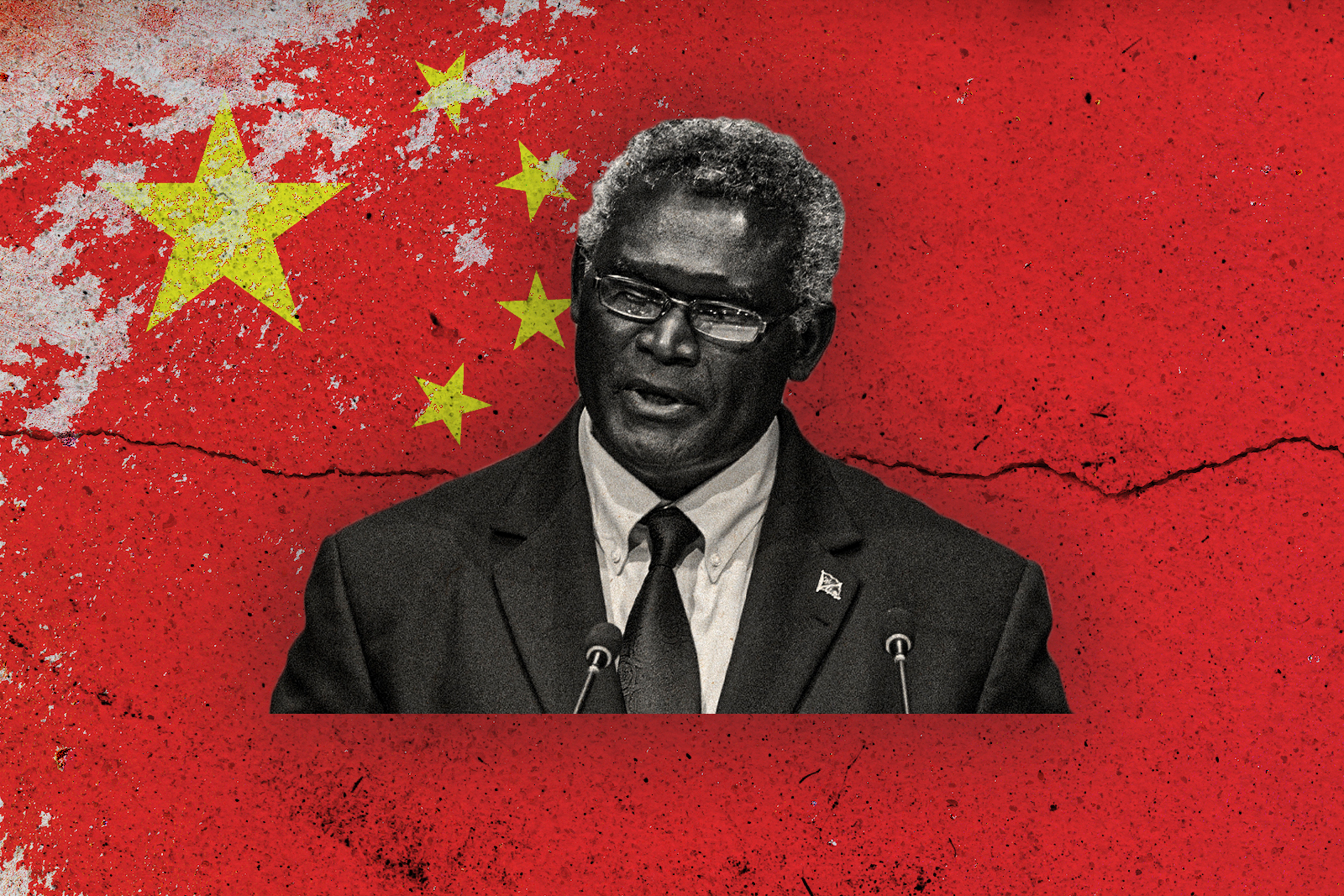
Dunderheaded Diplomacy: Australia’s Funding Offer to the Solomon Islands
What is it about Australian diplomacy that makes it so clumsy and dunderheaded? Is it the harsh delivery, the tactless expression, or the inability to do things with subtle reflection? On September 6, Australian diplomacy gave another display of such form with Foreign Minister Penny Wong’s remarks about elections in the Solomon Islands.
Things have been testy for the government of Manasseh Sogavare, who has rolled out the red carpet to officials of virtually all ranks from Beijing to Washington. Most, if not all of this interest, has been triggered by Sogavare’s signing of a security pact with China. This, the government in Honaria duly found out, is not approved by the Anglophone powers on either side of the Pacific.
On its announcement, then Australian Prime Minister Scott Morrison called a potential Chinese naval base a “red line,” while U.S. National Security Council official Kurt Campbell promised that Washington would “respond accordingly.”
Being in what is termed the Australian “backyard” by those who so happen to be in Australia, Wong made an offer that would irk any sovereign state, including her own: We, old friends of empire, are happy to bankroll your election.
The offer was floated largely because of two factors. Sogavare is keen to hold elections after the Pacific Games, scheduled to be held in late 2023. The Constitutional Amendment Bill 2022 placed before parliament will enable him to postpone the election till 2024. The unconvincing argument made by the government is that forking out the cash for both the Games and the election in the same year would be prohibitively costly.
Instead of leaving this messy situation to Honiara to scrap it out with its detractors and opponents, Wong decided to open the wallet. The Australian taxpayer, never asked in such matters, would happily cover the cost of the elections were they to be held next year. “We have made an offer of assistance, and it’s a matter for [the] Solomon Islands as to whether they respond and how they wish to respond,” she explained to RN Breakfast.
When asked whether this seemed to be a soothing response to the grievances of opposition politicians in the Solomon Islands, Wong could only be derivative. “No, this is because Australia has historically supported democracy in [the] Solomon Islands.” Australia had “previously offered support and we are offering support again.”
After the bitter, condescending tenure of the Morrison government, which saw South Pacific states mocked for their climate change concerns, Canberra’s perceived paternalism is not welcome. The statement that thundered Canberra’s way was one of stern disapproval. “The timing of the public media announcement by the Australian government is in effect a strategy to influence how Members of Parliament will vote on this Bill during the second reading on Thursday 8th September 2022.”
Using words that should appeal to Australia’s own politicians, the statement went on to claim that this was “an assault on our parliamentary democracy and is a direct foreign interference into our domestic affairs.”
Opposition MPs in Honiara have eagerly jumped at the promise of Wong’s statement. Using Australian assistance as a political means to weaken the government has played to a conventional stereotype: find the wealthy patron, and use that patron wisely. Australia’s offer, claimed MP Peter Kenilorea Jr. of the Parliamentary Foreign Relations Committee, was “generous” rather than one of interference, and the fuming on Sogavare’s part was “unfortunate and extremely unhelpful. It has exposed [Sogavare’s] selfish agenda to hold on to power.”
Opposition leader Matthew Wale is also of the view that Sogavare is desperate to entrench himself, using the amendment measure as a distraction. “If we respect the people’s mandate and parliamentary democracy and processes, MPs should reject the Bill to postpone elections. With Australian funding, there is now no need for the bill.”
The likes of Kenilorea have a point in noting how Sogavare had happily received cash from Canberra regarding funding for the Pacific Games itself. “When Australia gave [$11 million] for the Pacific Games it was heartily welcomed with smiles. But when an offer is made to support timely elections, it is seen differently.” Perhaps it says much that MP Kenilorea sees no distinction between games that are sponsored, in part, by a foreign power, and the election process that returns parliamentary members.
Back in Australia, Simon Birmingham, Shadow Foreign Affairs Minister, did not disagree with the sentiment, but took issue with the execution. The Albanese government, he remarked on RN Breakfast, should have done things in confidence and on the sly. To have made it public was a “giant misstep.”
Nor was the electoral gambit enough for those voices who wish to see the South Pacific turned into an Anglo-Australian garrison ready to repel the Yellow Horde. The apoplectic demagogues on Rupert Murdoch’s Sky News network rage that more should be done. The blustery Andrew Bolt told his handful of viewers that the Albanese government had shown “weakness” in not trouncing the independent will of island savages and their drift towards the bosom of totalitarianism. “It still refuses to say a word of criticism as the Solomon Islands, this island nation right on our border, as its leader pushes from democracy towards something looking increasingly like the Cuba of the Pacific.”
The only country risking the status of a “Cuba of the Pacific,” in so far as political isolation is concerned, is Australia. “Australia’s strategic dilemma in the twenty-first century,” writes former Singaporean diplomat Kishore Mahbubani “is simple: it can choose to be a bridge between East and the West in the Asian Century – or the tip of the spear projecting Western power into Asia.” In choosing to be a spear of Western interference, tipped by an ignorance of regional conditions and historical realities, Canberra’s estrangement and exile is all but guaranteed.

